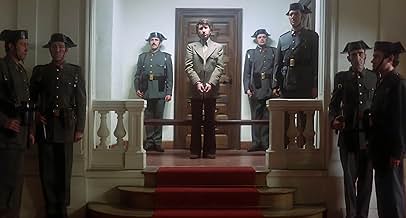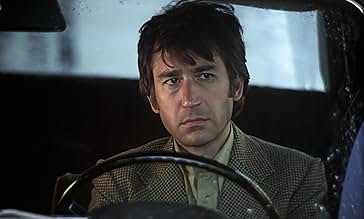Released a decade after Stonewall, the same year as the more broadly successful farce LA CAGE AUX FOLLES, and almost a decade before Almodovar's break-through to the U.S. market, LAW OF DESIRE, EL DIPUTADO was a terribly important film for a generation of young gay men hungry to see their problems treated with respect and intelligence. Without even intending to, it reopened the doors to appreciating subtitled "foreign" films for many of them.
One wishes EL DIPUTADO seemed more dated today as it looks at a well meaning bisexual socialist candidate for office (and his attractive, understanding wife) in a Spain still dominated by Franco fascists using every dirty trick to hold onto power after Franco's death as the country struggled to re-establish a real democracy under King Juan-Carlos, but in vividly recalling the British landmark film, THE VICTIM, which focused on the statutes repressing gays (once rightly called "The Blackmailer's Bill of Rights"), instead it rings painfully true and even relevant.
José Sacristán as the troubled socialist Deputy, Roberto Orbea is utterly charming and holds his own in part thanks to the appropriate political charisma of María Luisa San José as his wife Carmen. One might expect the charismatic Ángel Pardo as the dangerous hustler, Nes, to be the third driving force in the film (and his scenes do sizzle), but it is the layered lost innocence of José Luis Alonso's Juanito (the street kid Orbea becomes obsessed with) on which the film and Orbea's fate turn.
In 1978, EL DIPUTADO was marketed as a "gay film," and that was probably the only way it could have been accepted then, but in more enlightened times, it stands out for any audience as an excellent examination of the hypocrisy of right wing politics, and the problems we create for good men AND women when we force them into false roles by denying them the solace and support of marriage because they love the wrong people.
























